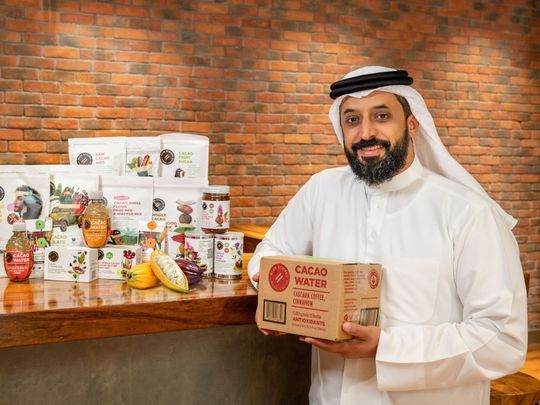The Emirati city of Dubai has achieved global acclaim as one of the world’s most popular holiday and tourism destinations. But what Dubai is not known for is a reputation as an international trade centre for cocoa. I bet you would not have guessed right in a million attempts.
And that is exactly the reason the city government is embarking on a strategic agenda to transform the Dubai Multi Commodities Centre (DMCC), a free zone enclave, into an international cocoa trade hub.
With this plan, the oil-rich city in the Persian Gulf is repositioning itself to tap significantly into the global cocoa trade and chocolate industry reportedly worth US$137 billion as of 2019.
Managers of the DMCC and the government of Dubai’s authority on commodities trade and enterprise announced plans last month to launch a state-of-the-art DMCC Cacao Centre in the desert city.
It said the facility will initially incubate a select range of cacao services within its DMCC Coffee Centre in Jebel Ali starting from mid-2021, with short term plans to “transform the emirate into an international trade hub for the in-demand superfood as part of its mid to long-term development strategy.”
“The DMCC Cacao Centre represents the next phase of our growth strategy and will see us transform Dubai into a global hub for the cacao trade,” said Ahmed bin Sulayem, Executive Chairman and Chief Executive Officer of DMCC.
The Dubai Multi Commodities Centre is currently home to more than 18,000 businesses from a wide range of industries and sectors, as diverse as agro, energy and financial services to diamonds, gold and base metals.
“Few thought the DMCC Tea Centre and DMCC Coffee Centre would reach the levels of trade we see today, so by utilising our expertise and experience gained from developing these commodities, we see cacao and its high-growth potential as a logical next step. Whilst connecting producers with consumers will be an important part of our model, we will ensure DMCC Cacao Centre follows our high-level approach toward sustainability, which prioritises driving value across the entire supply chain,” he added.
The centre noted that global demand for the superfood cocoa – shell, fruit and beans – is rising and considered one of nature’s highest sources of magnesium and iron, as well as antioxidants and natural cacao butter. Cacao is also linked to holistic wellness and is used for physical, mental and emotional balance.
DMCC is in contact with a range of cacao industry players, including Blue Stripes Urban Cacao and stakeholders across West Africa and South America, in order to better understand the needs of the market and how Dubai can play a central role in supporting its sustainable growth.
It promises members of the enclave access to “all the advantages of unparalleled trade connections direct to Dubai, the UAE and world’s key commodities markets.”
Cocoa-growing nations are credited with a 6.6% share of the annual revenue, whereas 6.3% goes to intermediaries, 42.8% for processors and manufacturers and the remaining 44.2% is bagged by retailers, according to Financial Times research.
Côte d’Ivoire and Ghana, the world’s top two producers of cocoa beans, who account for about 70% of global cocoa production share US$6 billion of the over US$130 billion revenue.
The soon-to-be latest entrant in the cocoa value chain, DMCC, was established in 2002 by the Government of Dubai to provide the physical, market and financial infrastructure required to establish a hub for global commodities trade.
- Illegal Mining Threatening Ghana’s $230M Cocoa Rehabilitation - April 10, 2024
- Ghana Raises Cocoa Farmgate Price by 58.26% to GHC2,070 per bag - April 5, 2024
- New Standard for Measuring Cocoa Household Income Launched - April 5, 2024
